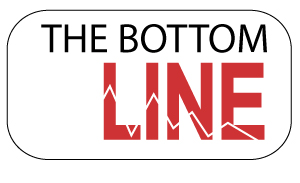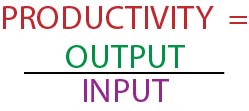Six Simple Keys to Project Success
A successful project doesn’t come easy, but it isn’t exactly rocket surgery. Below we’ve outlined six keys to project success to help your staff know where to focus their energy.
1.jpg?width=268&height=297&name=project_success_(ryan_suydam)1.jpg) 1. Plan
1. Plan
Clearly identify and confirm the objectives of the project with your client before you start. A plan will keep you from veering off track and save you from many problems if and when scope creep occurs. Effective planning enables you to meet the client’s schedule and budget requirements, or work through them together for a win-win outcome.
2. Engage
Both staff and clients have to be engaged in the process in order maximize project success. According to Ed Boyle, Global Practice Leader at Gallup, engagement increases performance-related business outcomes by 240%.
3. Measure
The concept of measuring in order to improve is not just a management catch phrase, it’s scientifically validated. The only way you’ll know how a project is going (or know how to make it go better) is to measure. We’re not suggesting you measure EVERYTHING, but do review your goals and start looking at metrics that can help you meet those goals. Measuring your clients perception of the project success, during the project, is critical to promoting their goals.
4. Adapt
To adapt means to make things fit, usually by modifying a process or way of thinking. Great project teams are skilled at adapting – having the ability to alter the way they practice or the way they think to increase the likelihood of project success. And these don’t have to be large or dramatic changes; they can be subtle changes, like checking voice mails more often. These small changes can affect the outcome of our projects in a big way, but require understanding the client in order to adapt appropriately.
5. Evaluate
Measuring throughout the project is crucial, just as important as creating a comprehensive evaluation at the end of the project. Taking time to evaluate may seem secondary compared to the primary efforts of executing the project, but don’t get too busy chopping wood that you never sharpen the ax. Talk to your clients - every project can teach us valuable lessons about how to improve both now and on the next project.
6. Recognize
Our basic human need for meaning applies to work life. We all feel our contributions are most meaningful when recognized for a job well done. If your staff feels they have a means to be recognized, they will work even more effectively, further contributing to project success.
Achieving predicable outcomes can be easy if you take a moment to find out from the project team what’s working, what isn’t, and respond accordingly. Obtaining feedback directly from clients is one of the easiest ways to assure project success.


 Do you lose sleep at night wondering if you have the capacity to handle work coming in or even worse if you have too many people? As a manager of a professional service firm, managing your human capital is a daily necessity to achieve firm growth and the anticipated performance expected from your employees. As the market changes, your firm needs information readily available to make quick decisions about acquiring, training, and scheduling your talent. Many firms rely on resource forecasting tools to handle the management of their employees. Let’s take a further look at some of the challenges firms have with managing their resources:
Do you lose sleep at night wondering if you have the capacity to handle work coming in or even worse if you have too many people? As a manager of a professional service firm, managing your human capital is a daily necessity to achieve firm growth and the anticipated performance expected from your employees. As the market changes, your firm needs information readily available to make quick decisions about acquiring, training, and scheduling your talent. Many firms rely on resource forecasting tools to handle the management of their employees. Let’s take a further look at some of the challenges firms have with managing their resources:  I was talking recently with a prospective client who observed that his firm had outgrown QuickBooks (QB). The conversation eventually led to a discussion of the advantages of ERP systems over back office accounting systems — which include not only efficiency gains, but strategic improvements as well.
I was talking recently with a prospective client who observed that his firm had outgrown QuickBooks (QB). The conversation eventually led to a discussion of the advantages of ERP systems over back office accounting systems — which include not only efficiency gains, but strategic improvements as well. 
 Of all the metrics that professional services firms can track, two of the most important are utilization and realization. These are different, but related ways of measuring employee productivity and profitability. Both can be measured with a high degree of accuracy — and made visible to management — using software.
Of all the metrics that professional services firms can track, two of the most important are utilization and realization. These are different, but related ways of measuring employee productivity and profitability. Both can be measured with a high degree of accuracy — and made visible to management — using software. 1. Make it Comfortable.
1. Make it Comfortable. Now that Spring has arrived, it is an excellent time to clean-up your database. Is your data clean, consistent, and accurate? Almost everyone you talk to would answer this question with an emphatic "NO" for one reason or another. Data is always degrading in any database you review because information is constantly changing. Contacts leave companies, projects progress, and opportunities move through the sales cycle.
Now that Spring has arrived, it is an excellent time to clean-up your database. Is your data clean, consistent, and accurate? Almost everyone you talk to would answer this question with an emphatic "NO" for one reason or another. Data is always degrading in any database you review because information is constantly changing. Contacts leave companies, projects progress, and opportunities move through the sales cycle.
 In this situation, I observed people giving advice as opposed to just sharing experiences. I found it curious that contributors to the forum assumed many of the variables the person inquiring had not provided and further, the person making the inquiry hoped to find solutions without providing any background or specifics.
In this situation, I observed people giving advice as opposed to just sharing experiences. I found it curious that contributors to the forum assumed many of the variables the person inquiring had not provided and further, the person making the inquiry hoped to find solutions without providing any background or specifics. 
 The conversations module on Kona is my favorite internet based tool that I have found since I discovered Google Docs. Kona allows users to hold separate conversations on each task of the project. Notice that an important detail was left off of the calendar for tomorrow’s meeting? No need to open up your email to contact the event host, simply update the event, and you are free to comment on the conversation to let others know of the change. This condensing of communication in to one multi-faceted medium allows for a clear and effective message, enabling project staff to focus on completing the project, and not talking about it.
The conversations module on Kona is my favorite internet based tool that I have found since I discovered Google Docs. Kona allows users to hold separate conversations on each task of the project. Notice that an important detail was left off of the calendar for tomorrow’s meeting? No need to open up your email to contact the event host, simply update the event, and you are free to comment on the conversation to let others know of the change. This condensing of communication in to one multi-faceted medium allows for a clear and effective message, enabling project staff to focus on completing the project, and not talking about it. The files module. How many times have you emailed someone a file, only to be told later that they never received it? Many people cannot receive emails larger than 2mb – a data size that is nothing in today’s media rich web. While programs like Outlook have made it easier to manage attachments, email was create in the late 80’s and was never intended to be a storage database for large, detailed files.
The files module. How many times have you emailed someone a file, only to be told later that they never received it? Many people cannot receive emails larger than 2mb – a data size that is nothing in today’s media rich web. While programs like Outlook have made it easier to manage attachments, email was create in the late 80’s and was never intended to be a storage database for large, detailed files.  Good customer service is a rare commodity in this day and age of virtual customer support agents. Business is done in an ultra-competitive arena where your direct competition is only a Google search away. As a result, firms are developing customer relations management plans to help better serve their client base. Has your firm ignored developing a plan to manage your customers?
Good customer service is a rare commodity in this day and age of virtual customer support agents. Business is done in an ultra-competitive arena where your direct competition is only a Google search away. As a result, firms are developing customer relations management plans to help better serve their client base. Has your firm ignored developing a plan to manage your customers?